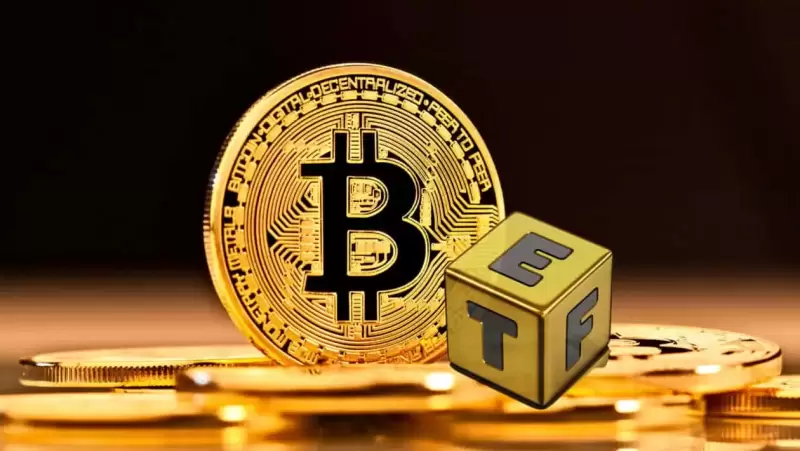 |
|
 |
|
 |
|
 |
|
 |
|
 |
|
 |
|
 |
|
 |
|
 |
|
 |
|
 |
|
 |
|
 |
|
 |
|
Cryptocurrency News Articles
Navigating the Crypto Shift: Decentralized Platforms in the Spotlight
Jan 27, 2025 at 04:55 am
With tighter crypto tax laws and the end of SAB 121 on the horizon, the spotlight is on decentralized platforms. Projects like $FLOCK, $MEMEX, and $RDNT bring fresh perspectives, while $UNI continues to be one of the pillars of the DeFi world.

As the crypto industry braces for a new era of heightened regulatory scrutiny, decentralized platforms are emerging as a beacon of hope for investors seeking to navigate these turbulent waters. With centralized exchanges (CEXs) now legally bound to report crypto transactions to ensure tax compliance and the recent rescinding of SAB 121, which impacted crypto custody, investors are turning to decentralized platforms for greater autonomy and protection from increasing oversight.
In this shifting landscape, several crypto projects are reshaping the scene with their innovative decentralized offerings. Here are four that are making waves right now:
1. $FLOCK: The Decentralized Haven for Meme Fans
Blending the spirit of meme culture with the freedom of decentralized finance, $FLOCK has soared into the crypto spotlight. The project has raised over $13.9M during its presale phase, with the total closing in on $14M.
Available at listing price on its website or the Best Wallet app until the official launch on Monday, January 27th, at 2 PM UTC, $FLOCK tokens can still be acquired at a favorable rate.
With decentralized platforms gaining favor as a response to stricter crypto tax laws, such as the requirement for CEXs to report crypto transactions, $FLOCK's decentralized model offers privacy and independence.
The platform boasts a community-driven governance structure, ensuring that decision-making remains in the hands of its dedicated users.
If you’re looking for a project with both substance and a playful edge, $FLOCK provides a unique mix of security, privacy, and humor that’s hard to ignore.
2. $MEMEX: The Gateway to Decentralized Media
Revolutionizing the way we think about media ownership, $MEMEX has raised $2.9 million during its presale with tokens currently priced at $0.0155933.
Positioned as a decentralized alternative to traditional media platforms, $MEMEX empowers creators and consumers alike. By cutting out intermediaries, it reduces costs while maximizing rewards.
With looming crypto tax reporting requirements, $MEMEX offers a decentralized space for independent content creation and consumption, free from centralized interference.
Think of $MEMEX as the crypto answer to Netflix, but with a twist: creators retain ownership of their content, and users directly benefit from their participation.
Whether you're a creator looking for financial freedom or a consumer hungry for fresh, authentic content, $MEMEX is a platform built for the future of media.
3. $RDNT: Bridging Assets Across Chains
$RDNT is revolutionizing cross-chain lending and borrowing on Arbitrum. The platform allows users to deposit assets on one blockchain and borrow on another, creating a seamless experience in DeFi.
As of January 2025, $RDNT is priced at $0.04981 with a 24-hour trading volume of $6.3M and a market cap of $42M. With over $230M in TVL, Radiant continues to grow in the competitive DeFi market.
Amid growing regulatory scrutiny, such as the requirement for CEXs to report crypto transactions, Radiant’s decentralized nature offers a solution for investors seeking to avoid tax reporting and exposure.
Additionally, the end of SAB 121, which impacted crypto custody, may push more users to platforms like Radiant, which provides greater privacy and control over assets.
4. $UNI: The OG of Decentralized Exchanges
$UNI is like the reliable friend of the crypto world – always there when you need seamless, permissionless trading. As one of the pioneering decentralized exchanges (DEXs) built on Ethereum, Uniswap revolutionized how tokens are swapped without centralized oversight or KYC requirements.
With stricter global tax laws looming, this anonymity could become increasingly attractive. Currently trading at $12.01, $UNI has seen a 7-day drop of 17.09% but maintains a robust market cap of $7.21B.
Recent discussions around $UNI’s upcoming V4 upgrade hint at significant innovations that could further cement its place in the market, despite challenges like a recent 20% price drop forecasted by analysts.
Whether you’re chasing the next big DeFi trend or simply exploring decentralized trading, $UNI continues to shine as a beacon of financial freedom.
Conclusion
As the crypto landscape continues to evolve, these projects are at the forefront of a new wave of decentralized innovation. Whether you’re a seasoned investor or just starting to explore the world of crypto, these projects offer a diverse range of options to suit your needs and preferences.
Disclaimer:info@kdj.com
The information provided is not trading advice. kdj.com does not assume any responsibility for any investments made based on the information provided in this article. Cryptocurrencies are highly volatile and it is highly recommended that you invest with caution after thorough research!
If you believe that the content used on this website infringes your copyright, please contact us immediately (info@kdj.com) and we will delete it promptly.
-

-

-

-

-

- Shibarium Network Growth Hits New High, Crossing 1 Billion Transactions
- Apr 05, 2025 at 03:40 pm
- The Shiba Inu price has fallen by almost 5% over the last 24 hours, carrying on with its bearish trend. The widely used Ethereum token has also dropped around 18% over the last week and 13% over the last month.
-

-

-

-

- Bitcoin (BTC) Market Is treading Carefully as Trump Prepares to Unleash New Tariffs
- Apr 05, 2025 at 03:30 pm
- The crypto market is treading carefully as traders and investors adopt a wait-and-see approach amid mounting macroeconomic uncertainty. The cautious sentiment is reflected in two consecutive days of net outflows from BTC exchange-traded funds (ETFs), suggesting institutional investors are reducing exposure ahead of a key geopolitical event.


























































